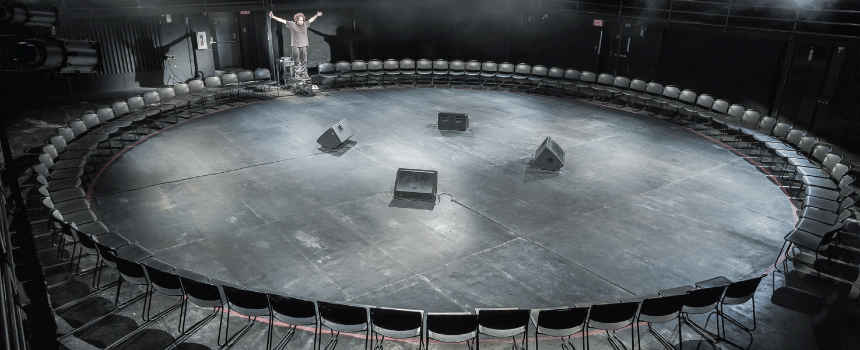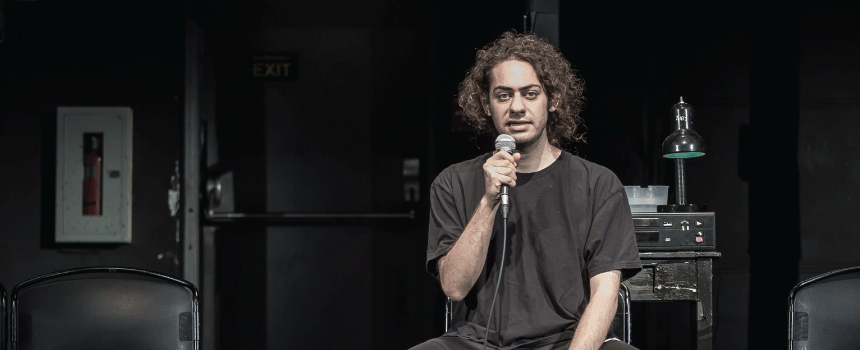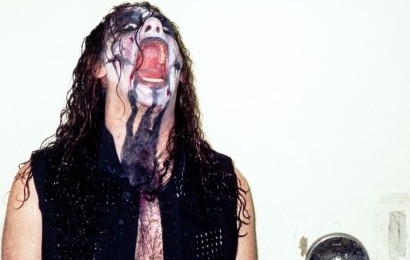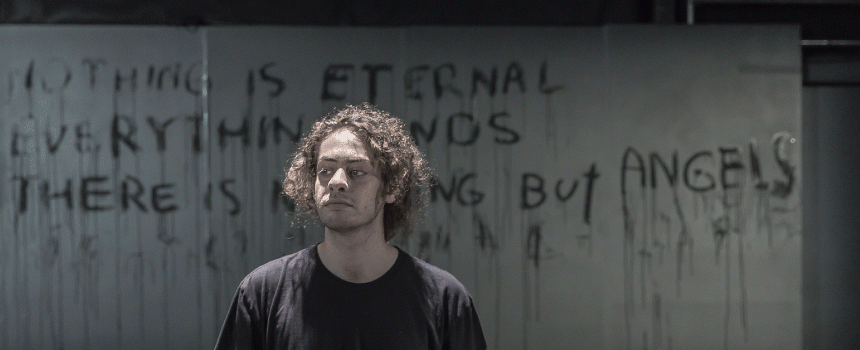It is the morning after the opening of The 20th of November. I find myself in a doctor’s office. It’s not just any doctor’s office. It’s my cancer doctor’s office and, having gone through testicular cancer a number of years ago, I periodically have to go see him to make sure that I am still cancer free.
The routine is pretty straightforward. I am taken from the main waiting room and brought into a small green office where I am to wait for the doctor to come in and tell me the result of the blood tests and chest x-rays that were taken a couple of weeks ago. Usually, I am in that office waiting for the doctor for about 10 minutes. This time, it takes 45 minutes.
It’s almost impossible for me to describe what my mind and body go through while I sit in this office – it is an anxiety that is so extreme, so beyond anything else that I ever experience elsewhere in my life. It was in this same office that I was told that I had cancer and that I would have to lose my left nut. It was in this office that I was later told that the cancer had spread and that I would require radiation.
I hate this office.
As I sit there for those 45 minutes – contemplating my mortality, wondering what I would do if I was sick again and had to undergo treatment now that I am jobless, trying to manage a desperately mounting panic (why is it taking so long? they must be putting a “team” together because I am sick again) – I say to myself that there has to be something that I can learn from this moment, a way to take this experience and turn into something positive.
Or maybe nothing good will come of this. Maybe I am just caught in yet another absurd situation, living an absurd life in an absurd world, potentially facing an absurd death.

I remember reading The 20th of November for the first time about four years ago. I had heard about it from a colleague who had seen a production of it in France and had, as one would expect, conflicted feelings about it. I was intrigued: a (mostly) verbatim piece taken from the online journals of a German high school shooter. I ordered the script online.
It was a difficult reading. It left me feeling, well, conflicted. One the one hand, it deeply frustrated me: the nihilism, the circularity of the structure, the hatred and anger. It just felt so… adolescent. And yet, on the other hand, I was surprised by how I related to much of it: some of the life experiences, many of the observations about what is fucked up about our society, the angst around the meaning of life, the deep desire to leave a mark on the world, to be remembered, to make a difference.
I became obsessed by my connection to the writing. It haunted me. What does it mean if I can understand where this guy is coming from? Or, as the playwright Lars Noren asks: what happens to the truth when a madman speaks it?
– – – – – – – – – –
A few weeks ago, I am sitting in a panel discussion at the Summerworks Festival entitled “Why is Theatre Boring?” It’s a well-intentioned conversation with many brilliant minds struggling to talk about what we are doing as theatre artists that is failing to grip audiences. I can’t help but feel, well, kind of bored by the discussion. We go in circles, covering ground that has been covered many times before. More risk! More fun! Less formality! More relevance! Less tradition! Etc. All useful stuff but I find myself thinking that if we all really believed that the theatre is boring and if we all really wanted to examine this question then we should be listening to people who don’t come to the theatre and not each other.
As a theatre artist, I am plagued with questions about the value of what I do. In this day and age, why make theatre? I’ve written about it before here and here. On some days, it’s clear to me. But on other days, I am in a real crisis about it.
The crisis goes something like this (most likely familiar to many):
Me: Okay seriously, why would anyone come see a play when there are so many easier and cheaper options for people to chose from?
Me: Because the theatre is different from any other form of storytelling.
Me: Okay, so, what makes the theatre so different?
Me: Duh… it’s live. The audience and actors share the same space.
Me: Okay. But have I ever made theatre that directly addressed that fact?
Me: … I don’t know.
Me: Well, if your work has never really addressed this, why hasn’t it?
Me: Um…. Fear?
And, voila! Crisis.

I believe that my core responsibility as a director is to insist on being truthful. Being truthful to the text, truthful to the character, truthful in my feedback to actors and collaborators, truthful to the audience. I recognize how problematic it is to speak of “truth”, particularly in the theatre when almost all of it is fiction, and yet “truth” is the only thing that I can hold on to as I navigate my way through any rehearsal process.
With The 20th of November, the premise is that of a young man who has invited his community into a theatre in order for them to take collective responsibility for an atrocity that he is about to commit. The audience coming to the theatre has been cast as this community. This is, admittedly, a kind of cruel surprise for the audience because they don’t necessarily realize that they will be the subjects of the evening’s performance until the show starts. It is my belief that this is the play’s intent. And I think it’s really quite brilliant – it’s a kind of reversal that not only challenges the role of an audience in the theatre (which is assumed to be passive) but also confronts our role as observers of violence in the real world (which is similarly assumed to be passive).
The work in rehearsal was to truthfully realize this intent and a series of choices were subsequently made that resulted in the production that is now on stage. As I watched the play in rehearsal, I would often experience a kind of panic about halfway through the show. Like a full body panic – an almost fight or flight instinct would take over. Good, I thought. This is what the character wants. And this is what I want. How can we not speak of this kind of violence – get to the “truth” of this guy’s beliefs and experiences – without feeling a deep panic? This must mean that we are getting close to something true. I would then say to myself, as I panicked, there has to be the potential to turn this experience into something positive, to learn something from it.
Or maybe this all amounts to nothing except the unbearable pain, suffering, and hatred of a disturbed young man facing an absurd existence.
– – – – – – – – – –
The doctor shows up. The tests are clear. I am still cancer free. I don’t have to come back for a whole two years. That’s how confident they are that I’ll be fine. I breathe a sigh of relief. I cry a little. He fiddles with my one remaining ball. I wonder whether the past 45 minutes of hell will amount to anything once I go back to the “real” world. I wonder whether the past 45 minutes are actually the most truthful 45 minutes that I have experienced in a long time.
And I leave the office.
all photos of Sina Gilani in The 20th of November by Jeremy Mimnagh
Related posts
Why Theatre?
Why Queer Theatre



